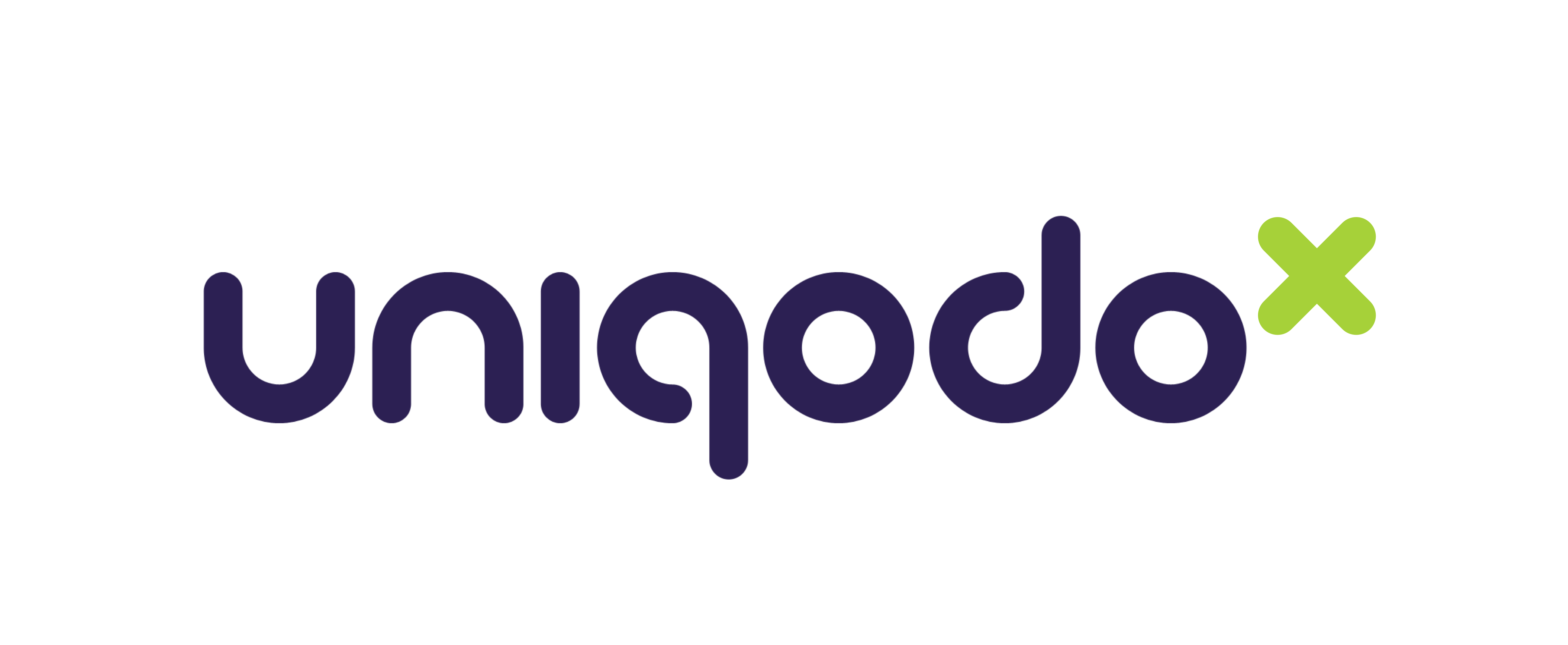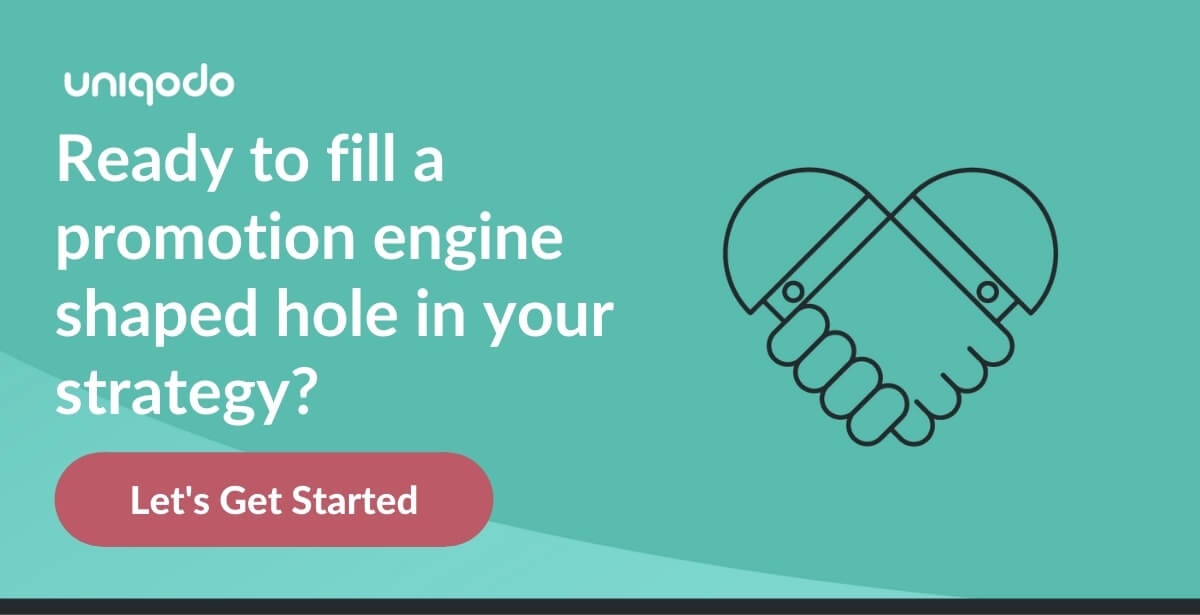There’s no doubt you’ll be able to successfully run a promotional marketing campaign out of your CRM. After all, that’s where your customer information is stored. But the promotional capabilities provided by most CRMs are limited — delivered as an afterthought. If you want to move beyond the basics, you’re going to need to augment those capabilities.
Not every CRM is the same. The differences between Salesforce and SAP Commercer, for example, are not insignificant. But, overall, the outcomes can certainly be improved. Promotional marketing is a critical part of modern sales success. It can help you attract new customers, generate customer loyalty, and drive specific business outcomes.
Here, we’re going to look at what a CRM can deliver, along with some of the more sophisticated options that a dedicated tool can help you achieve.
What can CRM help you achieve?
Your CRM will deliver the basics, including generating unique promo codes, offering different types of promotions and setting up basic validation criteria. Examples of these criteria could be sending out birthday promotions, date ranges for validation, or the ability to apply minimum order amounts to discounts. CRM platforms will also allow you to email promotions to your customers — a crucial part of any promotional marketing campaign.
CRM platforms really work for businesses that simply want to control code misuse and stick to strict promotional marketing budgets. But it’s undeniable that CRM systems have limitations for companies looking to execute modern promotional marketing outcomes.
Shortcomings of a CRM platform:
1. Limited reporting criteria: Although not all CRM tools are the same, generally, the data that they produce is restricted. A CRM platform won’t provide you with essential marketing metrics, for example within a dashboard, that show how successful your promotional campaigns have been. Furthermore, most CRM systems don’t provide A/B testing, meaning the promotion or messaging can’t be altered to see how effective individual campaigns are.
2. Restricted website promotions: CRM platforms don’t easily facilitate promotions that pop up directly on your website. This could be in response to a user’s actions such as something they click, or their previous browsing or purchasing history. With this capability, you could stand out from the crowd and offer value to both first-time customers and returning customers to retain their loyalty.
3. Limited personalisation capabilities: 91% of consumers are more likely to purchase with brands who provide relevant offers. While CRMs hold the personal information you need for personalisation strategies, they don’t fully deliver as a CRM system can’t efficiently tailor promotions to individuals in an automated way. These personalised promotions can then be monitored and tracked, meaning you can measure the success of your personalised campaigns.
CRM software can definitely provide promotional marketing capabilities. However, these are basic and limited in function. They are mostly unsuitable for businesses looking to customise promotions and their delivery to customers in order to drive superior business outcomes.
Why might you want to choose a more advanced promotional tool?
Promotional campaigns are meant to drive business growth
When executing a promotional marketing strategy, there are specific outcomes you may want that are hard to achieve without a more sophisticated promotional tool.
The main outcome, of course, is to drive business growth through promotions, which is possible through the more specific benefits that certain promotion solutions deliver. Let’s take a look at those particular advantages in more detail.
1. Complex validation criteria and hyper-specific promotions
An advanced promotion tool includes options like multi-stage validation, diminishing discounts and gamification programmes. The important outcomes of these include:
-
Improved customer loyalty — encouraging customers to interact and engage with your brand by standing out from the crowd will pull in more customers that will return to you if you provide a good service.
-
Getting customers to buy slow moving or distressed stock to receive discounts — this is a great way to prevent stock from going to waste and greatly impacting your margins.
-
Maximising occupancy for hotels or travel brands on certain days, locations or routes — this provides incentive for customers who may be less inclined to book holidays right now.
Creating more progressive and engaging promotional options will lead to happy customers — and happy customers mean returning customers. It’s a win-win!
2. The potential of single-use codes
Promo code misuse is rampant online, with codes getting leaked and being used by those they’re not intended for — meaning retailers’ margins get hit. The use of single-use codes can prevent this, and using the right promotional tool, they can be validated, monitored and tracked so you can also see how your campaigns are performing.
Unique, single-use codes also make it easier to execute the above specific promotions with the ability to customise validation criteria. This means you can try out and experiment with various promotions and the reporting capabilities a promotional tool provides will allow you to see what works.
Furthermore, with codes being unique and generated as and when they’re needed, retailers can more easily form third-party partnerships…
3. Third-party partnerships
Affiliate channels are a great way to gain brand awareness, but it’s limiting and risky to use generic codes when you do so — if a code is leaked online, it could be used by people it’s not intended for and cut into your margins. This is where unique codes become necessary. Unfortunately, a CRM system won’t provide you with access to generate unique codes for a third party on-demand.
The better third-party opportunities that a promotions engine will deliver are:
-
The generation of individual codes on demand — you’ll have considerably more agility when it comes to planning.
-
The opportunity to allow permission-controlled access by your third-party partners — giving you full control over promotional parameters.
-
Access to a wider promotional marketing ecosystem — you’ll benefit from looking beyond the technical capabilities of the tool towards a network that can help you with distribution deals and stronger partnerships.
-
Direct integration with third-party distribution partners.
What's the best strategy to upgrade?
You have two options when it comes to upgrading your CRM platform: build an in-house tool or invest in an advanced promotions engine. The best fit for you entirely depends on your own internal capabilities.
In-house solutions:
Building an in-house promotion solution will give you ownership over the final product, full control over functionality and a customised fit to your specific requirements. Like maintaining your own promotional marketing strategy from a CRM platform, any complications of in-house tools fall on your head. That can include the costs of development and maintenance, time resource, hiring IT staff, and investment in migrating to newer solutions.
Once you build a solution, it’s an ongoing commitment and doesn’t end when you “go live”. That’s why you need to look out for ‘scope creep’ — the continued expansion of functional requirements for a project. This will be a killer to your team’s productivity if you don’t have the appropriate capacity.
Wondering if an in-house tool is the right fit for you? Here are some questions to ask yourself:
-
Do you have a team with development skills who can build the solution?
-
Do they have the time capacity to dedicate to the task now and in the future?
-
Are you confident in their ability to create a competitive solution?
-
Do you have the resource to hire more staff?
Promotions engines:
A promotions engine is a dedicated promotional marketing tool that generates, validates and tracks the effectiveness of promotions and campaigns. However, the right promotion engine comes with additional features as well as essential strategic advice and development support from experts.
This means that you can build a tool that is tailored to your business needs without the worries of an in-house tool because you’ll have experts doing the heavy lifting for you. For example, if you want to create specific promotion criteria or expand your campaign, specialists can help you do this within your promotion engine.
This not only gives you the capacity to grow your promotional marketing strategy as you see fit, but it also provides you with the space to experiment with your campaigns and figure out what your customers want.
Remember: When it comes to picking a tool, there is no ‘right answer’. It’s all about matching a solution to your needs right now and in the future. If you’re not sure whether a promotions engine is for you, check out our eBook — Do You Need a Promotions Engine?
Stand out with a new solution
To go beyond the standard, you need to choose a solution that, first and foremost, allows you to think strategically and creatively without getting bogged down in any ongoing technical challenges. Utilising the right creative and personalised promotional strategy will be a game-changer for your business.
The best way to do that is to invest in a dedicated and specialist promotions engine — like the one we offer here at Uniqodo — so you're leading some of the best promotional marketing strategies out there in 2023.




Subscribe to the Blog